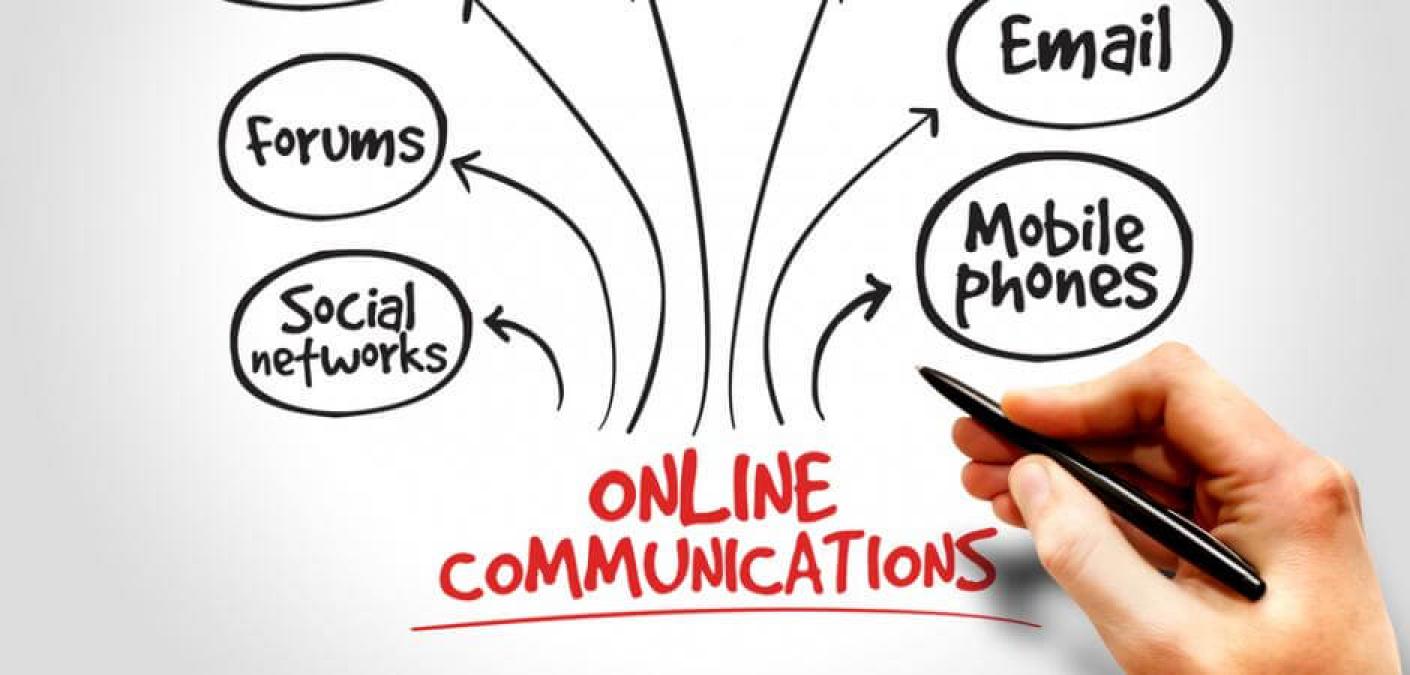Email Is No Longer the Only Vehicle for Business Communication

Remember when your business communications were limited to your desk phone, your mailbox and your work computer’s email account? During those simpler times, information flowed through just a few channels on a fairly set schedule. Now, for better or for worse, business communications are exploding in every direction.
Keeping up with colleagues and clients involves text messaging, group chats, collaborative documents, cloud storage, and videoconferencing — to name just a few ubiquitous communication channels that barely existed in business a decade ago.
Communications have evolved partly out of opportunity, but mostly out of necessity. Existing tools such as email could not keep up with the volume and velocity of modern business communications, which is why workers have taken it upon themselves to introduce their own collaboration tools — known pejoratively as “shadow apps.”
The rise of the remote workforce has made these collaboration tools both appealing and essential. Tools like Slack, for instance, can keep remote teams integrated in a way that group emails could not. New communication tools are here to stay, which means that it’s time to acknowledge both the risks and the rewards.
New Channels = New Challenges
Saving and securing certain information for legal and compliance reasons is nothing new, especially for companies in healthcare and finance. What often goes overlooked is that those requirements apply to the information itself, not the channel through which the information travels.
Social media is a great example. Most companies, especially B2B, consider these channels too casual for professional engagement — but that doesn’t mean they avoid social media. One survey showed that more than half of attorneys expect to see more litigation related to social media data. And even when it’s not directly related to the litigation, social media data is often requested as part of the disclosure process. Businesses may dismiss social media and other modern communication channels as irrelevant, but that doesn’t mean regulators feel the same way.
Moving forward, companies will need to treat all business communications as equally sensitive, regardless of originating platform. Fundamentally, the plans, policies, and protections that apply to some information should apply to all information. Otherwise, sensitive information could fall through the cracks and cause compliance breaches, legal troubles, administrative headaches, or bad PR.
Email is still important, but now it’s just one of many communication channels that require proactive security. And as the number of collaboration tools continues to grow, so will the amount of information companies need to protect. As such, keeping up with expanding requirements will require more robust security tools that provide flexibility and scalability above all else.
Using Archiving to Your Advantage
How do you prove that no one in your organization is mishandling sensitive information across the dozens of communication channels at their disposal? Easy: Archive as much as you possibly can.
Automated archiving can be utilized to capture any business communication with specific keywords or to archive every communication that flows through a certain channel. Once archived, the communications are organized into a centralized database that is accessible through a unified search feature. Essentially, archiving creates a vast running record of everything a company says and does — an extremely helpful resource if your company is ever put in a position to prove you did (or didn’t) say or do something.
And archiving has countless applications. Imagine you’re at a small law firm, for instance. The firm is subject to Federal Rules of Civil Procedure, meaning you’re required to store and protect any information that could ever be used in a lawsuit. Meeting that mandate is a big obligation, but it’s essentially effortless when business communications across channels (not just emails) are being put into an archive.
Public service organizations have the same obligation to store information in order to fulfill open records requests, as do financial service firms as part of Federal Communications Commission and Securities and Exchange Commission requirements. Most companies have either a requirement or an incentive to store as much of their outgoing and incoming communications as possible in one easily accessible location. Thanks to the cloud, archiving can now meet the expectations of regulators, lawyers, and end users alike.
Cloud-Based Archiving for Complete Compliance
Zix started out as the leader in email security. Now we are evolving to become the leader in communication compliance.
ZixArchive is built to capture more communications across more channels. All saved data is accessible through one portal, making effortless everything from compliance audits to legal disclosures to performance analysis. The cloud orientation of our archive allows it to scale to accommodate any number of communications. And because our background is in security, everything inside your archive is protected from threats and disruptions.
Our pricing model further distinguishes ZixArchive. You don’t pay for the amount of data you store or the number of users you have. Instead, you access our industry-leading technology and tireless customer support as a service. As everything you need is available through one vendor, ZixArchive is the complete solution for information security, today and a decade from now.
Archiving starts out as an obligation but can quickly become an advantage if utilized correctly. Don’t send your information off into a bottomless pit. Keep it in a useful and easily accessible archive.
